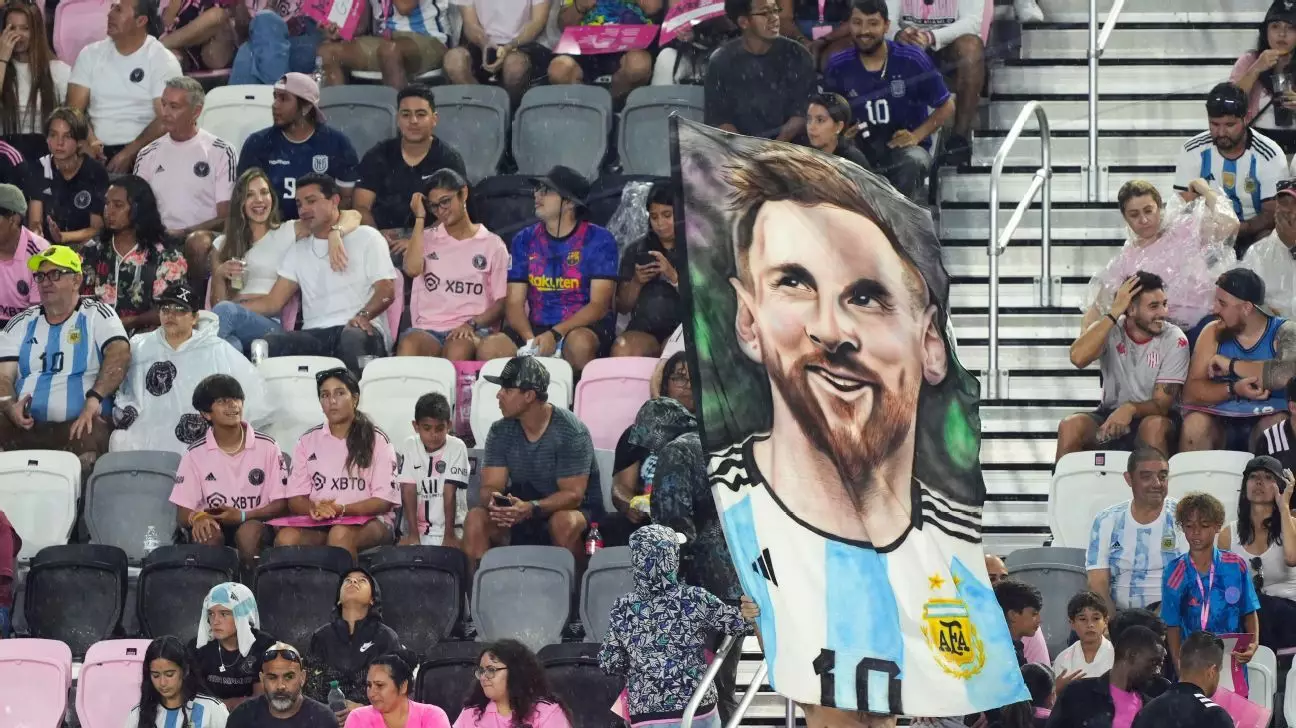As the world of soccer is immersed in various international tournaments this summer, Major League Soccer (MLS) stands out by not pausing its regular season games during the Copa América, European Championship, and Olympic Games. This decision has left many players, coaches, and fans questioning why the league insists on playing through such significant events without giving proper consideration to the implications.
Gerardo “Tata” Martino, head coach of Inter Miami, has been particularly vocal about his dissatisfaction with MLS’s decision to continue games during international windows. With as many as five key players leaving his squad during the summer tournaments, Martino has had to navigate significant challenges in forming competitive teams due to missing star players like Lionel Messi and Luis Suárez. This not only affects the team’s performance during the absent players’ matches but also hinders long-term planning and roster construction.
Other MLS coaches, such as Phil Neville of Portland Timbers, have pointed out the unfair advantage that some teams gain when facing sides depleted of their best players during international windows. Teams like Inter Miami are forced to field weakened squads, making it easier for opponents to secure victories. The imbalance created by having some teams at full strength while others struggle with missing players calls into question the fairness of competition within the league.
MLS executives, on the other hand, defend the league’s decision to continue games during international tournaments, citing the need to fit a certain number of matches within the season timeline. Brad Pursel, MLS senior vice president of game schedule management, acknowledges the challenges posed by player absences but emphasizes the importance of maintaining fan interest and attendance during the popular summer match dates. The league’s priority lies in scheduling 34 games between February and October, making it difficult to accommodate breaks for international tournaments without extensive changes to the calendar.
The absence of key players during international windows not only affects individual match outcomes but also has lasting consequences on roster construction and team building in MLS. With stringent roster rules and salary cap limitations, clubs must navigate the complexities of recruiting players who can fill in during absences while maintaining competitiveness throughout the season. The overlap between MLS games and summer tournaments poses a significant challenge for teams looking to balance their squads effectively.
While MLS has faced criticism for its current approach to scheduling during international tournaments, there is hope for potential changes in the future. With the upcoming 2026 FIFA World Cup hosted by the United States, Canada, and Mexico, MLS executives have hinted at the possibility of taking a break during the month-long tournament to allow for a smoother transition and mitigate the impact on the league. This forward-thinking approach suggests that the league is open to adapting its schedule to accommodate major global events.
The decision to continue playing MLS games during summer international tournaments raises valid concerns about fairness, competitiveness, and long-term planning within the league. While various stakeholders have expressed frustration with the current schedule, there are also practical considerations that MLS must address to balance the needs of players, clubs, and fans. As the soccer landscape evolves and new challenges emerge, MLS will need to find a delicate balance between tradition, competitiveness, and adaptability to secure its position in the global soccer community.

Leave a Reply